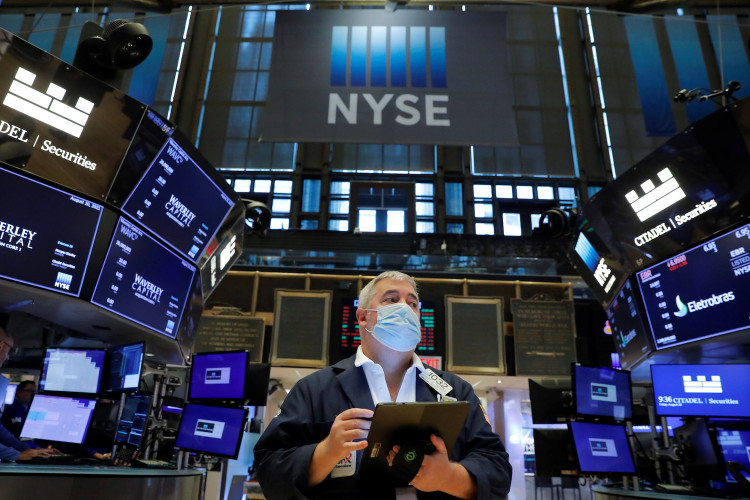Wall Street faced its most challenging day in nearly two years on Monday as a global stock market sell-off triggered by recession fears in the U.S. led to significant declines across major indices. The S&P 500, Dow Jones Industrial Average, and Nasdaq Composite all tumbled in a volatile trading session, reflecting heightened investor anxiety about the health of the U.S. economy.
The S&P 500 closed down 3%, marking its most substantial daily drop since September 2022, finishing at 5,186.33. The Dow Jones fell 2.6%, shedding over 1,000 points to end at 38,704.06. Meanwhile, the Nasdaq Composite declined 3.4% to 16,200.08. This dramatic downturn came just weeks after these indices had reached record highs following a prolonged market boom.
The international market turmoil began in Asia, with Japan's Nikkei 225 plummeting 12.4%, its worst day since the Black Monday crash of 1987. European markets followed suit, with Britain's FTSE 100 experiencing its steepest one-day decline in over a year. The sell-off was exacerbated by concerns over a potential U.S. recession, further fueled by an unexpectedly weak jobs report released on Friday.
Adding to the market's woes, the Federal Reserve's recent decision to hold interest rates steady has drawn criticism from some quarters, with critics arguing that the central bank has waited too long to cut rates. This indecision has contributed to the volatility and uncertainty permeating the markets.
The technology sector was particularly hard hit, with Apple's shares dropping significantly after it was revealed that Warren Buffett's Berkshire Hathaway had halved its stake in the tech giant. Apple, the world's largest public company with a market value exceeding $3 trillion, saw its stock fall more than 5% by the end of the day. The company's performance has a substantial impact on the broader market, and its decline sent ripples through other tech stocks.
The so-called Magnificent Seven-comprising Alphabet (Google's parent company), Amazon, Microsoft, Meta Platforms (owner of Facebook, Instagram, and WhatsApp), Tesla, Nvidia, and Apple-collectively saw their market value decrease by approximately $800 billion on Monday, according to LSEG data. This highlights the broader market's dependence on these tech giants and the significant impact their stock performances have on overall investor sentiment.
The market's broader turbulence was underscored by the CBOE Volatility Index (VIX), often referred to as Wall Street's fear gauge, which surged to levels not seen since the market crash triggered by the COVID-19 pandemic. The VIX later receded but remained elevated, indicating continued market uncertainty.
Michael Gapen, a U.S. economist at Bank of America, noted that investor concerns about a recession are intensifying. "The risk of recession is rising," he said, attributing some of the market's reaction to July's weaker employment figures, which he suggested might have been influenced by adverse weather conditions. He added that the Federal Reserve might be prompted to cut rates more rapidly in response to these economic indicators.
Despite the current turmoil, some analysts maintain a cautiously optimistic outlook. Stephen Brown, deputy chief North America economist at Capital Economics, expressed confidence in a potential soft landing for the U.S. economy. "Despite the weakness of the latest labor market data, we judge that a soft landing is still the most likely outcome for the economy," he said. However, he acknowledged that the risk of a harder landing has increased, and a sustained market reaction could force the Fed to loosen policy faster than anticipated.
The Fed's next rate-setting meeting is scheduled for September, and there is growing speculation about possible emergency measures. Jeremy Siegel, a renowned finance professor at Wharton, has even suggested that the Fed might need to call an emergency meeting to cut rates, reminiscent of its swift actions at the onset of the COVID-19 pandemic.
In the meantime, investors are grappling with the implications of recent economic data and the Fed's policy stance. Jack Janasiewicz, lead portfolio strategist at Natixis Investment Managers, advised investors to take a broader view of the situation. "Evidence certainly points to a slowing economy. But slowing and slow are two very different points," he wrote. He suggested that the market's reaction might be overblown and that lower prices could present buying opportunities.




